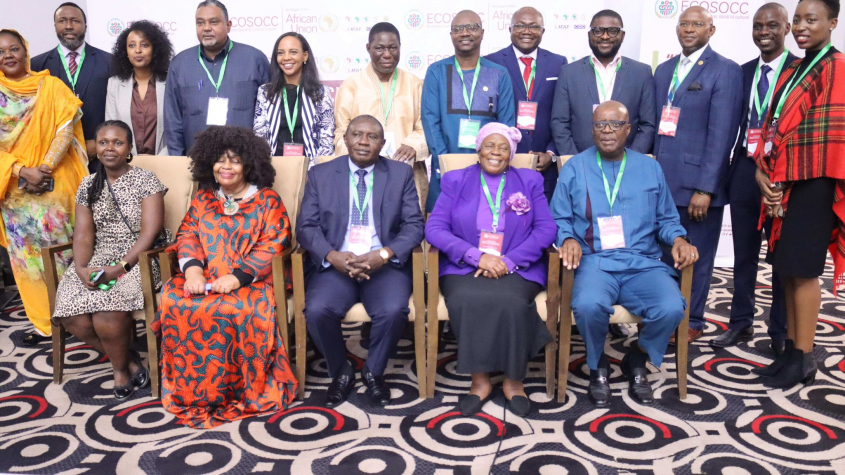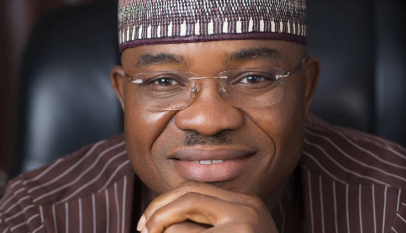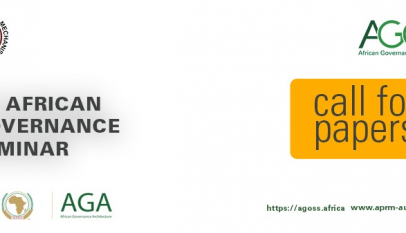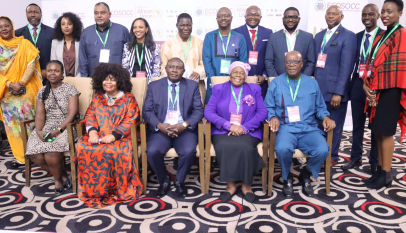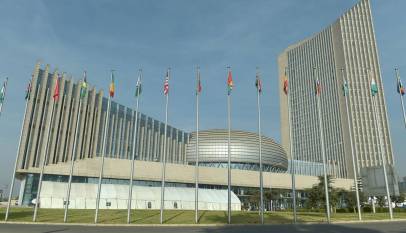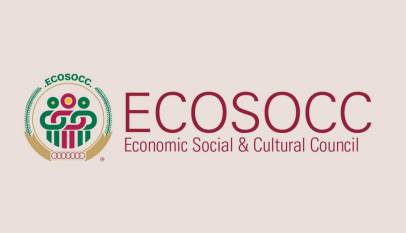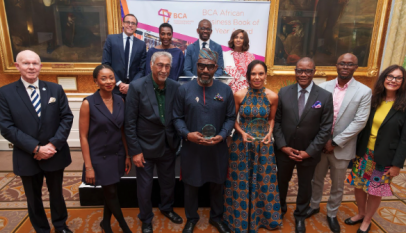Mainstreaming citizens’ voices in Africa’s campaign against undemocratic power shifts
Africa has recently grappled with an upsurge of unconstitutional changes of government (UCG), with countries such as Mali, Sudan and Guinea witnessing successful military takeovers, while others like Niger and Guinea-Bissau saw unsuccessful coup attempts.
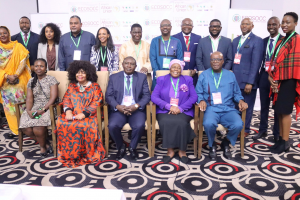
By Adam Alqali
While varied factors are responsible for the rising trend of undemocratic power shifts around African Union Member States, a common underlying factor is failure of governance. It was against this backdrop that the AU hosted a Reflection Forum on Unconstitutional Changes of Government (UCG) in Africa, last March in Accra, Ghana, to brainstorm on the phenomenon of UCG and proffer enduring solutions to the menace.
In May, the 16th Extraordinary Session of the Assembly of AU Heads of States and Government on Terrorism and UCG held in Malabo, Equatorial Guinea, assessed the persistent threats posed by the duo of terrorism and UCG, evaluated current response mechanisms, and agreed on specific actionable steps to curb the two challenges. The session climaxed with the adoption of the Malabo Declaration on Terrorism and Unconstitutional Changes of Government in Africa.
As a build-up to the drive against UCG, the Economic, Social and Cultural Council (ECOSOCC), in collaboration with the African Peer Review Mechanism (APRM) and the AU Commission, among others, last week, hosted a 3-Day Citizens’ Forum on Democracy and Unconstitutional Changes of Government in Africa at Lusaka, Zambia. The Forum brought together over 200 delegates representing AU organs, CSOs, academia, think tanks and AU strategic partners.
While welcoming delegates to the convening, William Carew, Head of ECOSOCC Secretariat, said legal and normative instruments such as the AU Constitutive Act, the African Charter on Democracy, Elections and Governance (ACDEG), and the African Charter on Human and Peoples’ Rights (ACHPR) as well as policy and executive organs, agencies and specialized committees of the AU would only be effective if they significantly impact on citizens’ life.
“To this end, the importance of the principle of a people-centered and people-driven African Union cannot be emphasized enough. This Forum, thus, seeks to translate the experience of African life into a policy advisory which ECOSOCC can present as part of its inputs into the policy discourse around the issue of citizens-led inputs on the matter of democracy and constitutionalism in Africa,” Mr Carew said.
“We will use the outcomes of this Forum to advise the AU on key areas demanding reexamination in the policy dynamics as well as chart a new direction for ECOSOCC’s activation of its various roles and tools within the African Union. This, among others, will include the national chapter framework and its meaningful role both in implementing and monitoring progress of Member States’ efforts to implement their responsibilities towards the realization of the African dream.”
In his remarks, Prof. Eddy Maloka, CEO of the APRM Continental Secretariat, said even as Africa had come a long way in achieving democratic governance, the upsurge in undemocratic power shifts threatens the AU’s shared values. He quoted a 2021 report by the Mo Ibrahim Foundation which showed an overall decline in Africa’s security situation and a shrinking of its human rights and democratic spaces.
“As Africans, we need a collective and robust response to address UCG and related issues, such as popular uprisings, mass protests and military interventions. Yet, our efforts towards advancing good governance, democracy, peace, security, and stability since the wake of the independence of our countries and the collective quest to silence guns in Africa by 2030, should not be diminished by the resurgence of UCG,” said Prof Maloka.
The APRM CEO said his Mechanism and the Africa Governance Architecture (AGA) Platform, had, in response to these challenges and, with the mandate of the AU Assembly, dedicated the Africa Governance Report 2023 (AGR2023) to the theme of UCG. To this end, he said AGR2023 would examine the root causes, identify the triggers, and assess the impact of UCG through an evidence-based approach based on the experiences of Member States that have recently witnessed UCG, and subsequently proffer measures for addressing the menace.
“It must be highlighted here that though concerned, the upsurge in UCG should not solely be perceived as a sign of regression in our democracy. Rather, it is a call for us to address deficits in the AU’s legal and normative frameworks on UCG, which include the Lomé Declaration, the African Charter on Democracy, Election and Governance and the AU Constitutive Act,” he stressed.
Prof Maloka decried the fact that African citizens, including women and young people, were often relegated to secondary and tertiary roles in the prevention of conflicts, the establishment of transitional justice mechanisms and the restoration of democracy efforts. He therefore expressed appreciation that the ECOSOCC Citizens’ Forum was geared toward guaranteeing greater citizens’ participation in democracy and good governance, like the APRM was doing.
“I am honoured to say that the APRM has continued to contribute to the promotion of full and equal participation of Non-State Actors in the evolution of our democracy. We have just successfully concluded our 3rd youth symposium for greater inclusion of youth in governance processes and are continuously implementing a gender mainstreaming strategy to achieve gender equality in governance processes. We have also established in collaboration with ECOSOCC, an APRM Network of Non-State Actors,” Maloka said.
Amb Salah Hammad, Head of the Africa Governance Architecture (AGA) Secretariat, urged African citizens to make their voices heard, noting that Africa will not achieve meaningful progress and development without effective engagement of youth, women and children in the governance affairs of the continent.
Therefore, Amb Hammad called on the Forum to comprehensively aggregate the voices, ideas and thoughts of African citizens which would help the AU address the menace of UCG on the continent, stressing that achieving good governance in Africa would require the domestication and implementation of AU instruments such as ACDEG and ACHPR by Member States, which is a cause the civil society should promote.
“I wish to call on each and every one of you to join the AU campaign for universal ratification of ACDEG by 2025. Currently, 35 out of 55 countries have ratified the Charter. If your country has not ratified it, make your voice heard by your government on the universal ratification of ACDEG. Yet, ratifying ACDEG is just the beginning, you also have to advocate for the domestication and implementation of the Charter’s provisions,” Amb Hammad urged the African civil society.
While declaring the Forum open, Mr Dennis Kodhe, Presiding Officer of ECOSOCC, said the entirety of African citizens – whether CSOs, media or professionals – had a role to play in Africa’s leadership and governance processes, hence the civil society must not leave the business of leadership and the task of addressing the continent’s numerous challenges including UCG entirely in the hands of those in government.
“ECOSOCC needs to continue to create platforms to engage with the civil society around the continent. We can’t continue to address military takeovers without addressing its root cause – bad governance! We must therefore address the root causes of military takeovers and stop glossing over the issue,” Mr Kodhe stressed.
An outcome statement issued at the end of the 3-day Citizens’ Forum made extensive recommendations to stakeholders. Among others, it recommended to the AU the review of the implementation status of the Livingston Formula which would allow for full involvement and engagement of African citizens in the continent’s peace and security efforts.
Likewise, the meeting called on the AU to collaborate with CSOs, media, the private sector, women and youth formations to help Member States build sustainable democratic governance, justice and peace, through the implementation of the AU Transitional Justice Policy. It also called on the AU to ensure its flagship initiatives such as the African Continental Free Trade Area (AfCFTA) create sustainable livelihoods for African citizens to foster meaningful inclusion.
The Forum further urged the AU to consider African civil society’s recommendations in the establishment of the proposed Peace and Security Council (PSC) Sub-Committee on UCG as well as provide adequate human, financial and technical support to ECOSOCC to effectively deliver on its mandate.
The Forum also urged Member States to address the root causes of UCG by ensuring accountability of state institutions, equitable service delivery, sustainable livelihoods and effective inclusion of citizens in decision-making, as well as promoting public dialogue on the state of democratic governance. Also, the statement urged countries to comply with their commitments to AU Shared values, particularly universal ratification of ACDEG by 2025.
Moreover, the gathering urged countries to undertake Country Structural Vulnerability and Resilience Assessments (CSVRA), APRM reviews and leverage innovative digital technologies to improve their accountability and access to information mechanisms. The Forum urged states to provide sustainable financing to state institutions and CSOs so as to reduce overreliance on external funding which may be at variance with their Pan-Africanist ideals and national interests.
Additionally, the Forum called on the AGA Platform to promote meaningful participation and mainstreaming of youth and gender in its Annual High-Level Dialogues and urged the Platform’s members to engage in joint advocacy for Member States on universal ratification of the Democracy Charter by 2025. The gathering also urged the AGA Platform to foster citizens’ inclusion in the review of the implementation of AGA and Africa Peace and Security Architecture (APSA) as well as ensure meaningful inclusion of citizens’ voices in the formulation of AGR2023.
The Citizens’ Forum offered a platform for deep reflections on social and political contexts about the recent upsurge of UCG on the continent. It afforded the civil society an opportunity to explore the use of transitional justice systems to advance peace, stability, and democracy and accordingly stem the upsurge of UCGs across Africa. Subsequently, the Forum drew a CSO roadmap for the entrenchment of democratic values in Africa.

